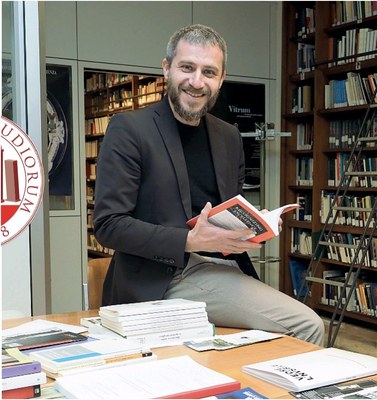 What are the contents and goals of AlchemEast?
What are the contents and goals of AlchemEast?
The project entitled AlchemEast (Alchemy in the Making from Ancient Babylonia via Graeco-Roman Egypt into the Byzantine, Syriac and Arabic traditions) studies the oldest and still largely unknown phases of the science of alchemy, retracing the thousand-year history of a discipline usually only associated with the European medieval period. In actual fact, the earliest “proto-chemical” recipes date back to Mesopotamia (2nd millennium B.C.), while a rich collection of alchemical writings was compiled in ancient Greek in Graeco-Roman Egypt and in Byzantium and then translated into Syriac and Arabic (8th-10th century).
What goals does the research project set itself?
To make the original and translated texts accessible in order to follow the passage of alchemical knowledge between different civilisations and to analyse the recipes handed down by reconstructing and verifying the scientific and experimental basis of alchemy.
Not least, reconstructing alchemical practices will enable us to better understand the system of values, beliefs, and natural philosophies used by alchemists to describe and explain their achievements.
What are the characteristic elements of the research project?
Alchemy is identified as an experimental science that manipulates and transforms matter through a series of craft practices. The utopia of being able to transform base metals (lead, copper, iron) into gold has long since left the chemistry laboratories, but the experimental practices developed by alchemists in search of “metal transmutation” have a direct relationship with modern chemistry.
What are the most innovative aspects of this research?
Through the collaboration of philologists, science historians and chemists, we have reproduced in the laboratory techniques for the extraction of mercury and for the synthesis of artificial cinnabar (the mineral from which mercury is obtained), and we have retrieved procedures for the production of inks and for dyeing silver gold using the “divine water” of the ancient alchemists, an aqueous solution of calcium polysulphides.
What challenge does the AlchemEast project respond to? What do you see as the benefits to society?
The AlchemEast project offers food for thought on the history of science and on the complex processes that led to the development of chemistry. This reflection is all the more urgent today, when the widespread attitude towards science seems marked by the risk of an insidious opposition between those who trust and those who do not believe in scientific knowledge. The reproduction of ancient alchemical recipes in modern laboratories makes it possible to explore the age-old path of research, creating a new dialogue between modern science and ancient arts and sciences.
How did you feel when you heard you had been selected for funding? What does this mean for your research path?
I was awarded the grant in 2017. When I heard the news I felt a mixture of disbelief and intense satisfaction. The ERC funding has allowed me to expand the line of research I had undertaken during my PhD. It has given credence to a somewhat unorthodox topic. Numerous publications edited by me have already been published, and there are more on the way. This has scaled up the interest in early alchemy and placed it in the broader panorama of the history of ancient science.
RicERCatori in Evidenza is the column dedicated to the University of Bologna's cutting-edge research funded by the European Research Council-ERC and its protagonists.
